
The Best Nutrients for Anxiety
Anxiety can impact your health in numerous ways, from decreased productivity at work, to weight gain, and more. Luckily, a diet rich in these nutrients can help relieve some of the stress. Read more to find out some of the best nutrients for anxiety symptoms.
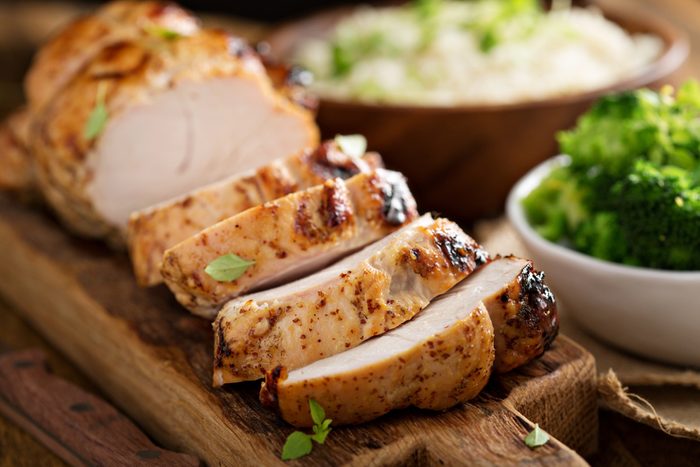
Extra B vitamins
If you take individual B vitamins, also take a good B complex supplement to help prevent imbalances among these vitamins, which work together. In a study of people with panic disorder, OCD and depression the B vitamin inositol in amounts of up to 18 grams daily was as effective and had fewer side effects than an anti-anxiety medication. This reflects my clinical experience, where I’ve found inositol to be very helpful with clients with obsessive and ruminating thoughts.
Vitamin B1 is important for blood sugar control and this has a major impact on anxiety. Vitamin B3 is involved in many enzymatic processes and plays a key role in serotonin synthesis. At doses of 1,000 to 3,000 mg a day, it may be helpful for anxiety. Vitamin B5 is very important for the adrenals and therefore helps with modulating stress.
Folic acid and vitamin B12 are important for depression, and given the links between anxiety and depression, they may also be helpful for anxiety. They also support heart health, which is important if you suffer from anxiety or panic attacks, which stress the heart.
Get the nutrients naturally
Good food sources of the B vitamins include liver, meat, turkey, whole grains, potatoes, bananas, chiles, legumes, nutritional yeast and molasses.
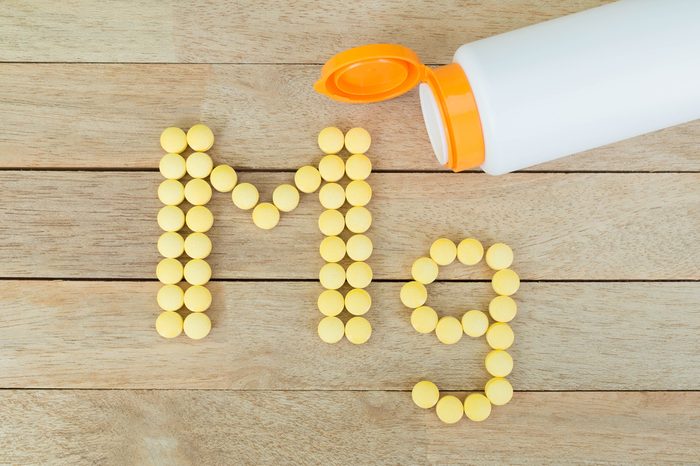
Magnesium and calcium
Magnesium is a calming mineral that nourishes the nervous system and helps prevent anxiety, fear, nervousness, restlessness and irritability. Also, magnesium is also very protective of the heart and arteries. Again, this is important if you suffer from anxiety or panic attack
A typical supplemental amount is 400 to 600 mg of magnesium per day, usually with 800 to 1,200 mg of calcium, as it’s typically best to get about twice as much calcium as magnesium. However, taking magnesium alone can be helpful for anxiety, and you may actually need more than the typical dose, perhaps as much as 1,000 mg of magnesium per day. Experiment with different amounts and decide what’s right for you based on how you feel, and cut back if you get loose stools.
Taking magnesium and calcium at bedtime can also help promote restful sleep. A very pleasant and easy way to increase your intake of magnesium is to add about a cup of Epsom salts to a warm bath. You’ll absorb the magnesium through your skin. Add some lavender essential oil and have a wonderful calming soak before bed, and you’ll sleep better too.
Get the nutrients naturally
Dark-green, leafy vegetables, like spinach, kale and chard, contain plenty of calming magnesium as well as good amounts of the B vitamins. Whole, unrefined grains like oats, buckwheat, millet and quinoa also contain both magnesium and B vitamins.
Many high-magnesium foods are also a good source of calcium, especially spinach, turnip greens, mustard greens, collard greens, green beans and sea vegetables. Other sources of calcium include dairy products, sardines, sesame seeds, broccoli and celery. The herbs basil, thyme, rosemary, oregano, dill and peppermint are also good sources of calcium, as is cinnamon.
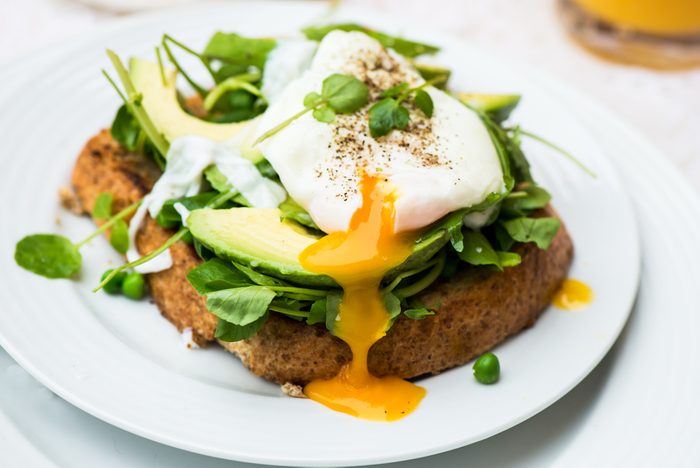
Vitamin D
Vitamin D is a fat-soluble vitamin that is found in eggs and fatty fish such as salmon ad mackerel (and cod liver oil), but your body can also make its own vitamin D after exposure to ultraviolet rays from the sun, though this is somewhat dependent on the season and your geographic location.
This nutrient may improve seasonal anxiety and depression that worsen during the winter months. One study showed that vitamin D deficiency was associated with both anxiety and depression in fibromyalgia patients. Vitamin D is also important for immunity, bone health and heart health, and it helps protect against cancer.
Recent research on vitamin D indicates that many people are deficient in this key vitamin. I recommend that all of my clients have their vitamin D levels checked and have found that the majority have low levels. Vitamin D status can be measured by a simple blood test, 25-hydroxy-vitamin.
When supplementing, be sure to take vitamin D3 (cholecalciferol). Vitamin D2 (ergocalciferol) is the synthetic form and not effective. Recent research suggests that it’s most effective to take vitamin D with your largest meal.
Also, keep in mind that a great deal of research is being conducted on the health benefits of vitamin D. Plus, it’s a controversial topic, so recommendations in regard to ideal level, dose and timing may change. The Vitamin D Council is a good resource for recent findings.
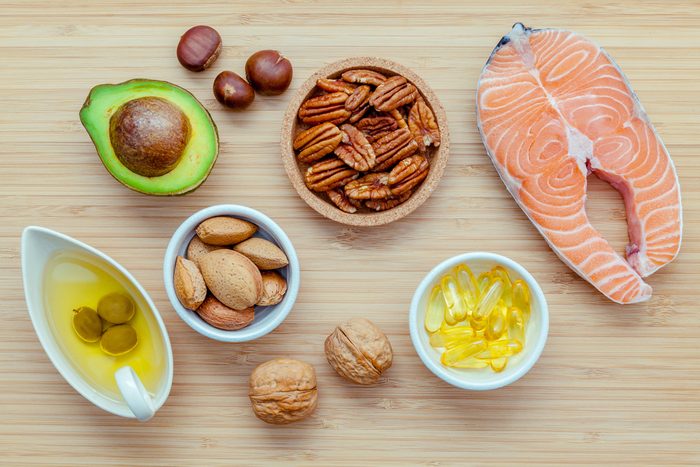
Omega-3s and omega-6s
It’s well known that omega-3s from fish oil (EPA and DHA) are effective for alleviating depression, and one study looking at substance abusers with low fish consumption found that supplementing with fish oil for three months resulted in less anxiety and anger. I recommend that you eat fish, including some oil fish, such as salmon and sardines, and only supplement with fish oil if you know for sure that your levels of omega-3s are low.
A good starting dose is 1,000 mg daily. Fatty acid tests are available from labs such as Meametrix. Results will indicate whether you need to supplement with omega-3s, omega-6s or both, and will also indicate your levels of damaging trans fats. Many anxious people with pyroluria don’t need to supplement with omega-3s but do seem to need the omega-6 GLA, ideally in the form of primrose oil.
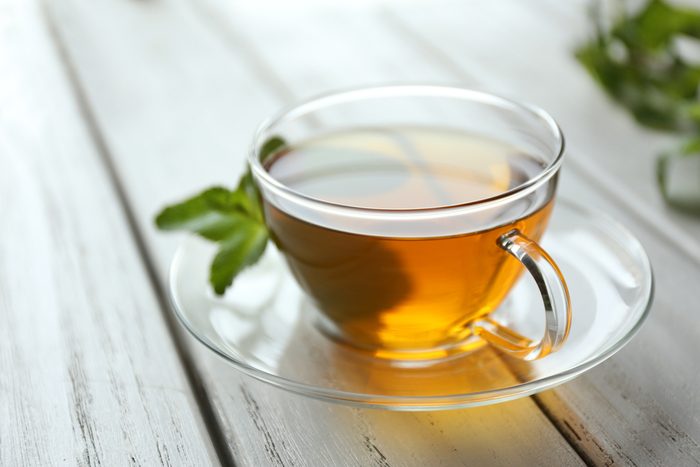
Theanine and lactium
L-theanine, an amino acid found in tea, has a calming effect and reduces physiological responses to stress. It also raises levels of GABA, the calming neurotransmitter. It also has properties that offer protection against environmental neurotoxins. A typical supplemental dose of theanine is 50 to 200 mg.
Lactium, a supplement made from the casein protein in milk, has been shown to reduce stress-related symptoms, including anxiety, emotional and social problems, and digestive issues. This product also lowers levels of the stress hormone cortisol.
Source: Excerpted from The Anti-anxiety Food Solution, Trudy Scott
